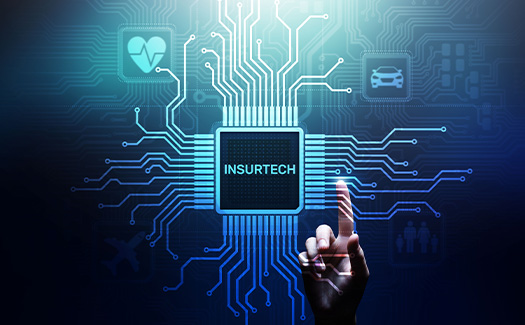An Integrated Risk Management (IRM) platform is far more than a data organization tool. The right integrated risk management solution not only aggregates data associated with various forms of risk - including insurance and EH&S - but it also supports your risk strategy and improves performance by enabling effective governance and ownership. Here are 10 things your integrated risk management (IRM) platform should support.
1. Manages Data Aggregation
Risk management starts with aggregating data from disparate sources and presenting it in a way that’s easy to understand. Your risk management platform should make this straightforward. Not only by organizing data but also by reporting on it using metrics specifically designed for your company’s business model.
2. Produces Accurate Risk Forecasting
An ideal IRM platform uses historical data to provide a good estimation of what may happen in the future. In this way, instead of merely guessing whether or not you’ll be exposed to certain risk events, you can make better data-supported decisions.
3. Provides Alerts for Gaps in Coverage
The ability to provide alerts when there are gaps in coverage is crucial, especially considering how quickly business models, operations, and assets can change. Alerts regarding gaps in coverage from your IRM platform can eliminate risk blind spots, that, for a relatively small investment, can be covered by insurance.
4. Streamlines the Renewal Process—From Capturing Data to Market Submission
Without an IRM platform, the renewal process can be long and laborious, especially because there are so many factors to consider, and the fallout from getting it wrong could be catastrophic. But by streamlining the renewal process, your IRM platform helps ensure all your bases are covered, regardless of how much your business model has changed since you last renewed.
5. Empowers Negotiations for Insurance Coverage and Premiums
When you have a clear picture of the risks your organization is exposed to, as well as how to mitigate them, you’ve effectively “earned” less expensive insurance. An IRM platform can position you to reduce your risk in a way that, from an insurer’s point of view, makes you a more attractive—and less risky—customer. This makes it a powerful tool as you prepare to approach the negotiating table.
6. Provides Governance for the Full Claims Management Lifecycle
As an insurance provider, you should be able to depend on your integrated risk management platform to give you an edge when it comes to managing claims. IRM systems can facilitate the consolidation of risk data. In this way, an IRM platform supports critical activities such as processing claim payments and auditing/reconciling numbers, in all phases of the lifecycle.
7. Maintains a Full History of Claims Documentation and Communication
Bringing together claims data from diverse sources yields standardized data that improves your organization's awareness of the risk it faces.
You can trace all claim information, including the description and causes of the loss, using the right IRM platform. This enables you to define your claim categories and transactional values, as well as assess claim payment data. An effective IRM platform also provides client-specific custom data fields while also identifying frequently used claims management fields.
8. Offers Multi-Language and Multi-Currency Functionality for International Business Transactions
Businesses are becoming more multi-national, with clients and employees located all over the world. A capable IRM system can handle this kind of diverse business environment with ease, using multiple languages and currencies.
In this way, your IRM platform breaks down the kinds of communication silos that can corrode important strategic relationships. Also, by removing any uncertainty surrounding monetary value, your IRM can help ease the minds of customers across international borders. As a result, you can establish—or maintain—a reputation as an agile, international business.
9. Ensures Security—Even when Outsourcing Data Management to Third-Parties
Cyber incidents are the number one risk for businesses in 2023. Even when an organization does all they can to secure data within their own digital walls, if a third party your business has trusted with the sensitive data gets breached, the results can be devastating. Therefore, you should choose an IRM platform that supports security, regardless of whether the data is confined to your organization’s systems or is being managed by a third party.
10. Collects Payment, Audit, and Reconcile Amounts
Your IRM platform should support various facets of the payment management process, such as collecting, auditing, and reconciling. By managing these functions, your IRM solution helps maintain cash flow, as well as ensures you have the data you need on hand in the event a regulator asks for it.
For example, the ability to reconcile the amounts paid gives you the power to evaluate how money moves—and why—whenever you have to review your business’s cash flow. Having this concrete data available makes it far easier to strategically improve your processes—and then use this info to boost profitability.
With Ventiv Tech’s integrated risk management software, you can check all of the above boxes. With Ventiv’s IRM platform, you drop the total cost of your risk and get a range of tools that ground and streamline your risk management system. Learn more by setting up a demo today.










